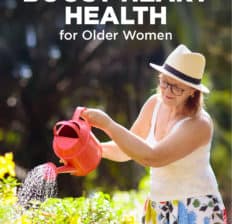This Dr. Axe content is medically reviewed or fact checked to ensure factually accurate information.
With strict editorial sourcing guidelines, we only link to academic research institutions, reputable media sites and, when research is available, medically peer-reviewed studies. Note that the numbers in parentheses (1, 2, etc.) are clickable links to these studies.
The information in our articles is NOT intended to replace a one-on-one relationship with a qualified health care professional and is not intended as medical advice.
This article is based on scientific evidence, written by experts and fact checked by our trained editorial staff. Note that the numbers in parentheses (1, 2, etc.) are clickable links to medically peer-reviewed studies.
Our team includes licensed nutritionists and dietitians, certified health education specialists, as well as certified strength and conditioning specialists, personal trainers and corrective exercise specialists. Our team aims to be not only thorough with its research, but also objective and unbiased.
The information in our articles is NOT intended to replace a one-on-one relationship with a qualified health care professional and is not intended as medical advice.
Housework, Gardening Boost Heart Health for Older Women
April 12, 2022

Many can attest that it’s good for the soul, but is gardening good for the heart? Does it “count” as exercise?
A new study published in the Journal of the American Heart Association aimed to answer the question, particularly when it comes to more mature women.
The researchers also looked at housework to see if that’s good for your heart, too.
Coronary heart disease is the top killer of adults, and it has been since 1921 — so any new findings have broad implications for saving lives.
Study Findings: Housework, Gardening Boost Heart Health for Older Women
Researchers followed postmenopausal women over age 62 for a little over six years and found that women performing “daily life movement” like gardening and housework for at least four hours a day were 43 percent less likely to be diagnosed with heart disease compared to women who tallied less than two hours a day.
“The study demonstrates that all movement counts towards disease prevention,” says lead author Steve Nguyen, Ph.D., MHP, a postdoctoral scholar at University of California, San Diego. “Spending more time in daily life movement, which includes a wide range of activities we all do while on our feet and out of our chairs, resulted in a lower risk of cardiovascular disease.”
The study brings to light that focusing solely on structured weight training and cardio workouts isn’t the only way older women can take steps to protect their heart health.
“Much of the movement engaged in by older adults is associated with daily life tasks, but it may not be considered physical activity. Understanding the benefits of daily life movement and adding this to physical activity guidelines may encourage more movement,” says senior author Andrea LaCroix, Ph.D., MPH, chief of the Division of Epidemiology at UC San Diego.
Heart Disease Risk Factors for Older Women
Heart disease is a blanket term that includes common illnesses in women like:
- Coronary artery disease
- Arrhythmia
- Heart valve diseases
- Microvascular disease
- Cardiomyopathy and congestive heart failure
- Broken heart syndrome
Heart disease in women is the No. 1 cause of death in female adults. In fact, one in five women will die because of it.
When it comes to heart attacks specifically, older women fare much worse than men, making it more important than ever to identify risk factors and new prevention strategies.
“Older women are less likely to survive their first heart attack and more likely to develop heart failure following their first heart attack when compared to men,” according to Penn State researcher Donna Korzick, Ph.D., professor of physiology and kinesiology.
The main risk factors for heart disease in older women include:
- Hypertension
- High cholesterol/triglycerides
- Impaired blood glucose
- Smoking cigarettes
- Sedentary lifestyle
- Eating a poor diet full of processed foods
Interestingly, some of the risk factors, especially high blood sugar, are even more dangerous for women compared to men.
Other Ways to Support Heart Health
- Manage your stress.
- Schedule downtime, and avoid overcommitting.
- Eat lots of vegetables, fruits, beans and other whole foods.
- Try gentle yoga, including calming breathing exercises and relaxation.
- Avoid harsh cleaning products. Emerging research suggests the plastic and fragrance chemicals called phthalates can increase the risk of heart disease.
Conclusion
- Heart disease is a top killer of women.
- Older women are less likely than men to survive their first heart attacks.
- Exercise helps protect against heart disease, but simply being active throughout the day by doing housework and gardening can reduce the risk of heart disease by up to 43 percent, according to a recent study.
- To improve your heart and the entire ecosystem, learn how to garden with plants native to your region.
- Opt for more natural cleaning practices, and avoid synthetically fragranced products.
- “The Living Landscape” is a great book to get started.











